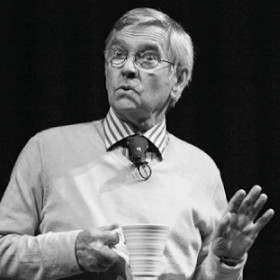Michael Coveney: Hooray for Hull and good vibrations in Lille
Our chief critic salutes the awarding of the title of UK City of Culture 2017 to Hull, and reflects on a slew of 50th anniversaries
We've only just recovered from one 50th anniversary, at the National Theatre, to be swamped with two others this weekend: of the assassination of President Kennedy, and the birth of the television sci-fi series Doctor Who. And then there's been the Benjamin Britten centenary, which has prompted some wonderful broadcasting on BBC Radio 3; I've particularly enjoyed some of the lesser known songs and chamber music and a discussion with Britten's colleague Colin Matthews about the part played by gamelan music in his operas.
All this – not to mention Mike Leigh revealing that his new film, Mr Turner (with Tim Spall as the great painter), has been shot entirely on digital cameras, and that he will direct The Pirates of Penzance for ENO in 2015 – and still more celebratory writing and talking about Hull being nominated the next UK City of Culture in 2017.
All the usual connections have been rehearsed: Hull-born Maureen Lipman was brilliant on lunchtime radio in evoking the special geographical pull of Hull "at the edge of the world" and as a gateway for generations of immigrants, as well as the city's simple, get-on-with-it mentality. She also said that Geordie-born Hull playwright Alan "Close the Coalhouse Door" Plater must be spinning in his grave, presumably with a sort of satirical half-baked joy.
Plater opened the Spring Street Theatre in Hull, the home of Hull Truck, founded by Mike Bradwell in the early 1970s and later run by John Godber, who mostly produced his own plays there for many years (Godber remains, to this day, the only playwright I have ever seen on a prime time television chat show; he was awarded national treasure status by Terry Wogan). Another great son of Hull, Barrie Rutter, unveiled the opening production of his Northern Broadsides Company, Richard III in clogs, in a boathouse on the Hull Marina.

Broadsides is based in Halifax: "From Hull, Hell and Halifax may the good Lord deliver us," ran a superstitious incantation of beggars and thieves, suggesting also a sort of cultural cringe when it comes to those locations. But I've got a feeling that Hull will have a few surprises for us all in four years' time.
Tom Courtenay, another prominent native, may well be persuaded to repeat his lovely show about the poet Philip Larkin, who was for 30 years the university's librarian; a university whose drama department has nurtured such alumnae as the late Anthony Minghella (whose volume of early plays I "introduced" for Nick Hern when he was still at Methuen), arts writer and former BBC correspondent Rosie Millard (who wrote a lovely piece about the city in the Telegraph last week), Variety critic, actor and choral singer David Benedict, and Indhu Rubasingham, artistic director of the Tricycle in Kilburn.
That's not a bad little nexus of talent to begin with, and to perhaps cross-fertilise with the latest activity and innovation in the city. I have visited both the Ferens Museum and the smartly restored New Theatre – where Biggins is in panto this year; he should have a few good new jokes now, which will make a nice change – and had nothing but a good time wandering around the place. Mind you, I don't have to live there.
Larkin took a serious interest in pornography but thought that having sex with women was a waste of time; it's like asking them to blow your own nose, he once told his friend Kingsley Amis, another serial misogynist. So he probably wouldn't have taken much interest in the remarkable French movie Blue is the Warmest Colour, winner of the Palme d'Or at Cannes and just opened in London.
After the hilariously bad dramatic "action" of In the Next Room (or The Vibrator Play), at the St James, in which a Victorian quack uses a primitive sex aid to induce "paroxysms" in his female patients (and "paroxysms of laughter" in his audience), it was a great relief (sic) to watch a movie that was so grown up about female sexuality and indeed same sex attraction.
And being a French movie, it places the sizzling physical relationship between the art historian and the younger student (who becomes a kindergarten teacher) in the context of their philosophical and intellectual conditioning. Not many British movies would litter such a story with meaningful, reverberative references to Marivaux, Les Liaisons Dangereuses, Sartre, Picasso, Klimt and Schiele. And yet one British critic, Camilla Long in the Sunday Times, declares that a cinema sensation about two young female lovers in Lille (where it's set) sounds as unlikely as something exciting happening in Southampton; or, presumably, Hull.
It's interesting that the other great "blue" movie of the year, Woody Allen's Blue Jasmine – his best in ages, indeed probably his best since Bullets Over Broadway – is set not in New York but on the wrong side of the tracks in San Francisco; how very NOCD (Not Our Class, Darling) if you're a Sunday Times reader. Anyway, the bottom line is that the amazing performances of Adele Exarchopolous and Lea Seydoux in the first film would surely be a shoe-in for a shared Oscar were it not for Cate Blanchett giving the performance of her life in the second. Ladies, I salute you. Please allow me to abase myself at your feet: Hull, I should warn you, hath no fury like a critic scorned.












